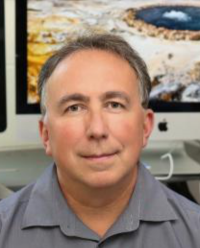
University of Tennessee at Knoxville
Reverse genomics to culture uncultivable microbes
Title: Reverse genomics to culture uncultivable microbes
University of Tennessee at Knoxville
Mircea PODAR is a Joint Associate Professor at the University of Tennessee Knoxville. Among his active research projects are the study of hyperthermophilic Archaea (primarily Nanoarchaeota) from hot springs and deep-sea vents; microbial adaptation and interspecies interactions in microbial communities associated with plants, animals, and humans.
Dr. PODAR uses a wide range of experimental and computational approaches that combine single cell genomics and metagenomics with cultivation and characterization of novel microorganisms from various environments, including the human body. He was involved in the original National Institutes of Health (NIH) Human Microbiome Project and contributed to several of the seminal studies published under that initiative. His current research on the human microbiome focuses on understanding interspecies interaction in health and disease (including cancer), primarily in the oral microbiome, and cultivation of novel organisms through the use of genomic information. As most microbial lineages from many environments are still uncultured, the overarching theme of his research is the development of novel approaches that use genomic data from genomes and metagenomes to isolate and study the microbial “dark matter.” His research has received funding from the Department of Energy, National Science Foundation, NASA, and NIH.
Mircea PODAR received his Ph.D. from the University of Texas Southwestern Medical Center, where he studied the biochemistry and molecular genetics of mitochondrial catalytic RNAs. Following postdoctoral studies at Woods Hole Oceanographic Institution focused on molecular evolution and at the Salk Institute in La Jolla on molecular virology, he was a bioinformatics scientist at Diversa Corporation in San Diego. At Diversa, Dr. Podar focused on microbial evolutionary genomics and enzyme evolution and, in the early 2000’s, he did pioneering work in the emerging fields of metagenomics and single cell genomics.
Dear Mr./Ms.
You have registered successfully, the registration information and attention has been sent to the contact and the participants of the mailbox, please note that check. If not received, please contact the general meeting